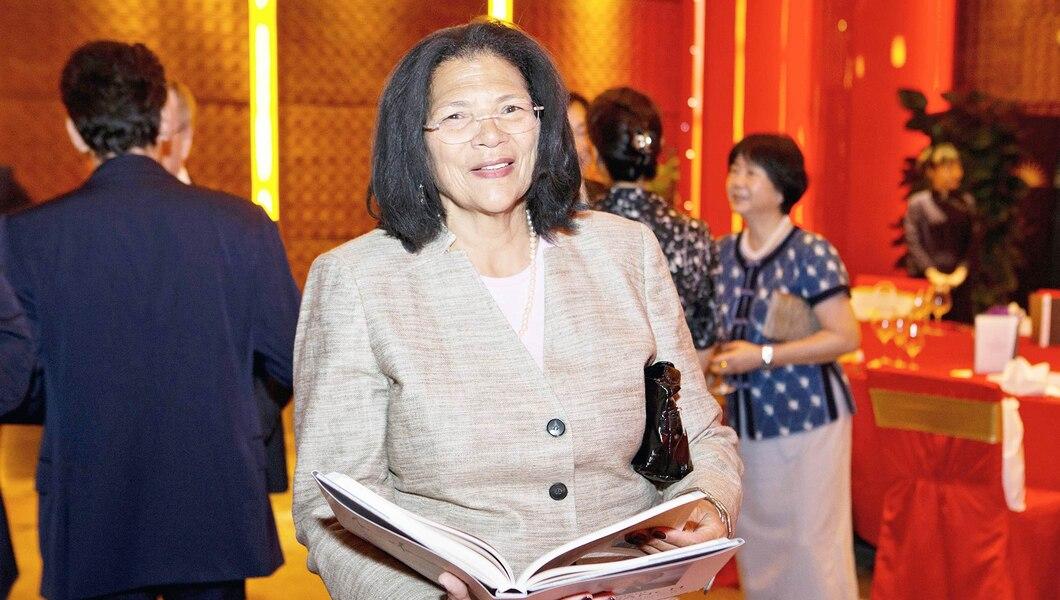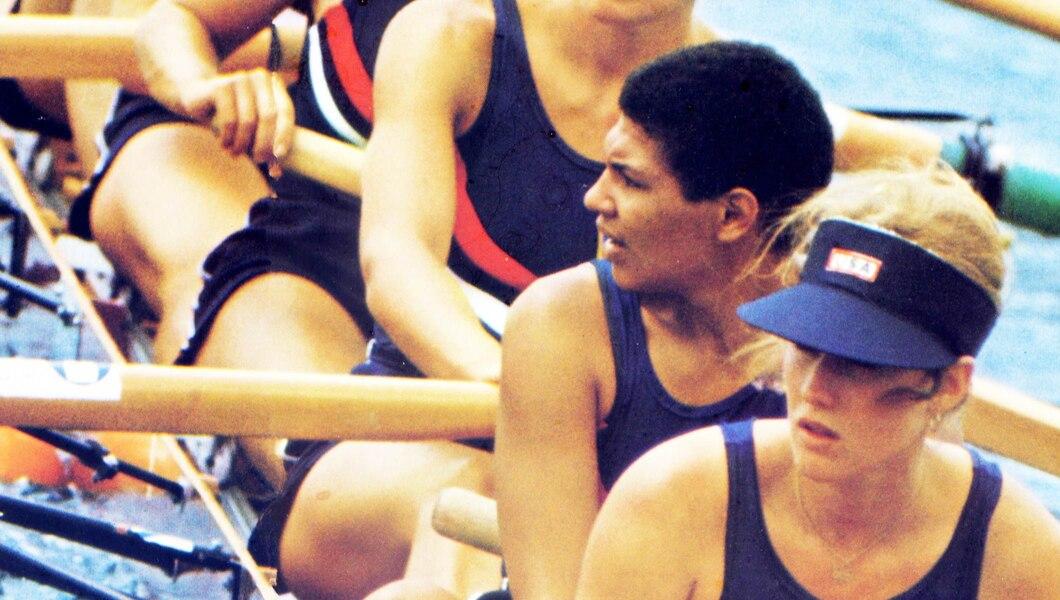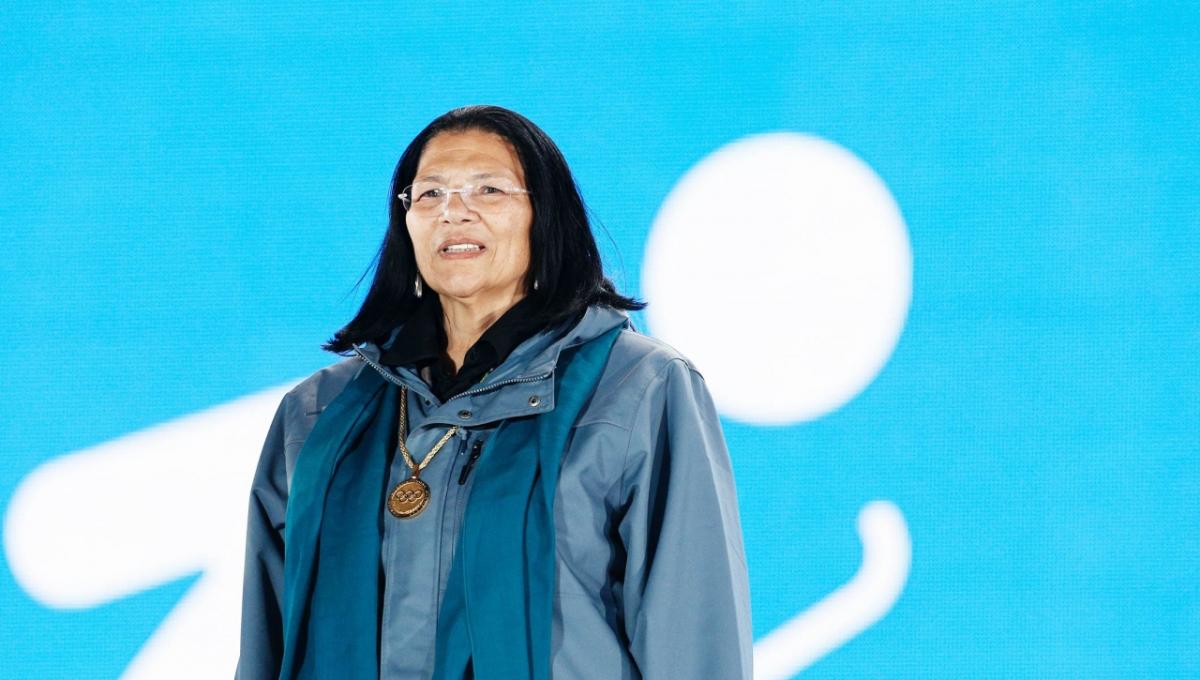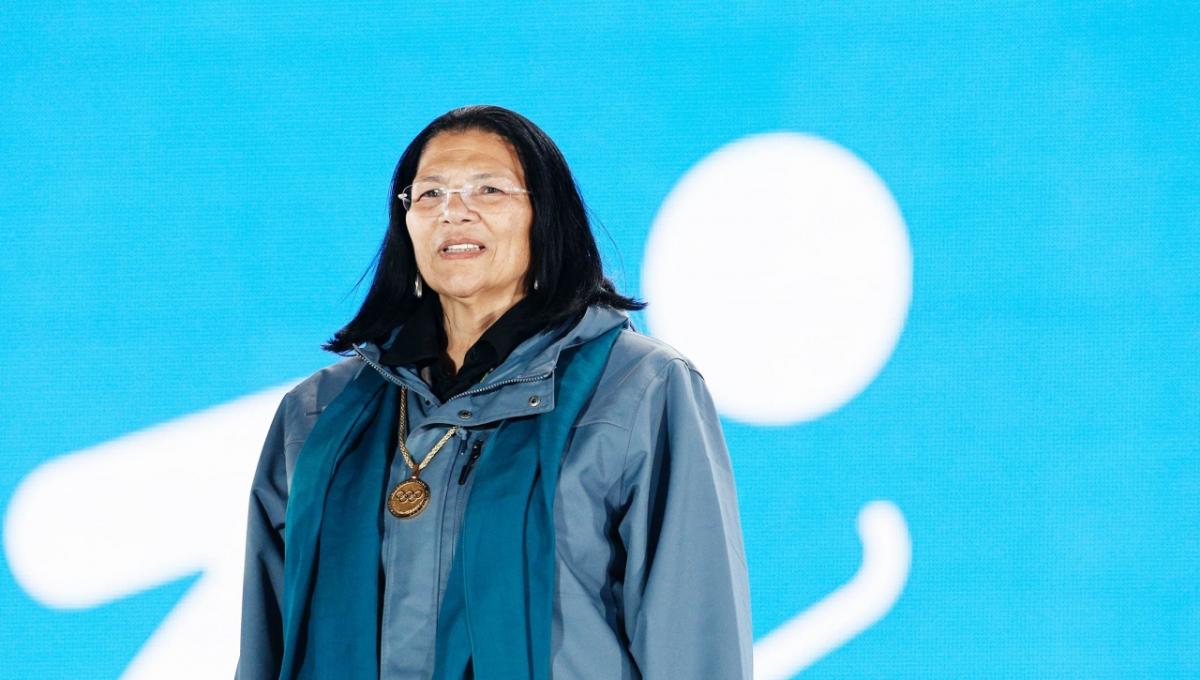Anita Defrantz: “It Was One of Those Moments That Changed the World”
International Olympic Committee
Twenty-five years on, as the United Nations celebrates this historic blueprint, IOC Vice-President Anita DeFrantz shares her recollections from the event and looks at the progress that has been made in the past quarter of a century.
There is something about sport that is unique to the human species. We are the only species on the planet that sets up hurdles to race across, to see who gets to the finish line first. It is part of our nature, and I believe it is our birth right to have access to sport. Of course, we in the Olympic Movement have understood that for more than a century, but before the Fourth World Conference on Women, sport wasn’t really thought of as being a significant right. The conference represented the first time that sport was considered part of the international women’s movement.
As a child, I had no access to sport. My three brothers got to play sports, but I did not. I learned to swim when I was four years old, and that was the end of my sporting opportunities until I went to college. Playing sport is an important step in the evolution of children to be able to be a part of society – and when that doesn’t happen for girls, it’s a huge loss.
In my sport of rowing, when women’s events were first included in the Olympic programme in 1976, for some reason we only raced exactly half the distance that men did. It wasn’t until 1988 that this was finally corrected.
All of these life experiences are what founded my belief that we could live in an equal world. It was challenging, and I knew it didn’t have to be. Little did I know that, one day, I’d be in a position to change that.
It gave me great joy to be in Beijing. It was a privilege to represent the IOC as Chair of the newly formed Women and Sport Working Group, and to understand how women in the world were working to achieve equality. As Chair, I was the leader for the IOC. We had to go through a long list of meetings to determine which would be most important for us to attend – and there were a lot of meetings. For us, it was a fact-finding mission, to learn what other women were doing. The image that stays with me to this day is seeing the vast number of women in all their traditional clothing coming together and understanding that, if we work together, we can make a difference. A picture of gorgeous humanity.
It was a huge challenge for us to make sure that sport was recognised in the Beijing Declaration and Platform for Action. For the future of sport, we needed more people – and the great untapped group of people was women. We needed women to make sure that sport grew. At the end of every Olympic Games, the call goes out to the youth of the world – it doesn’t specify boys or men, but youth. Based on that, I was able to make the argument that we not only had to talk the talk, but also walk the walk. It was an essential moment for the future of sport for women – to get the recognition worldwide and to get the United Nations thinking more about sport than it had in the past. That was the beginning of all the positive things that have happened in the last 25 years.
I’m very proud to say that, at the IOC, we have not only talked the talk, but also walked the walk. We held world conferences on women in sport, which brought together the women of the world. Each quadrennial, we would make proposals to make things better for women and, through that, we were able to generate a lot of movement and help people understand the significance of getting more women involved in sport. The other thing that was important was setting goals. Having goals helps people realise that change is visible; if you keep records, you can see whether change is happening or not.
When I competed at the Olympic Games Montreal 1976, barely 20 per cent of the athletes were women. At Atlanta 1996, the figure was 34 per cent. At next year’s Games in Tokyo, a record 48.8 per cent of the athletes will be women. We’ve had Youth Olympic Games, both winter and summer, with equal representation, and now every sport on the Olympic programme has women’s events.
After I retired from competitive rowing, I became the fifth woman to be elected to the IOC, in 1986. I’m so happy that now 37.5 per cent of IOC Members are women. Our goal is equality.
And yet there is more work to be done to make sure there is equality across sports. Promotion of women’s sports is one area that needs help. During the Olympic Games, journalists cover women far better than they do for the other 50 weeks of the year. I don’t understand why, if you can do it for two weeks, you can’t do it forever? The production element of women’s sport is still different from men’s sport. If you watch some events without commentary, you would have a completely different view of what goes on. Close is not the same as equal. We need to fix that.
We have come a long way since the historic conference in Beijing, but we have more road to travel. It was one of those moments that changed the world, and I’m really proud that the IOC was a part of it. At the time, some people were mad at us because we weren’t able to wave our wand and instantly change things. Twenty-five years on, I’m proud that I’ve played a part, no matter how tiny a part, in making the world a better place.
THE BEIJING DECLARATION AND PLATFORM FOR ACTION
Twenty-five years ago, the Fourth World Conference on Women in Beijing set a path-breaking agenda for women’s rights. As a result of the two-week gathering with more than 30,000 activists, representatives from 189 nations unanimously adopted the Beijing Declaration and Platform for Action. This historic blueprint articulated a vision of equal rights, freedom and opportunities for women.
Sport is explicitly mentioned in the Beijing Declaration and Platform for Action when referring to three critical areas of concern:
- education and training of women;
- women and health;
- girls.
Over the last 25 years, the IOC has been advocating for the participation of women at all levels, encouraging its stakeholders – National Olympic Committees (NOCs) and International Federations (IFs) – to enhance the presence of women in sport.
Most recently, the IOC took a leadership role in the UN Women Sports for Generation Equality Initiative. Launched in March 2020, the Sports for Generation Equality Initiative is a powerful multi-stakeholder coalition – consisting of governments, United Nations organisations, sport for development and peace organisations, civil society, sports federations, event organisers, leagues, teams, brands, marketers, media and sport influencers, etc. It is an invitation to bring in new partners and generations to embrace and revitalise the historic Beijing Declaration and Platform for Action, and to make gender equality a lived reality.





